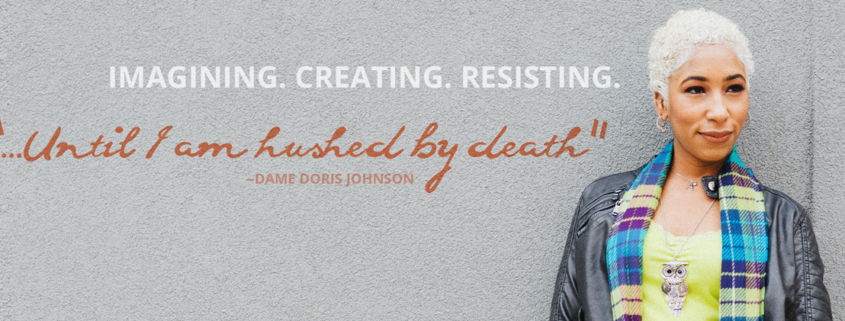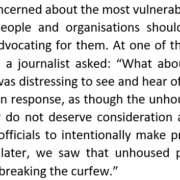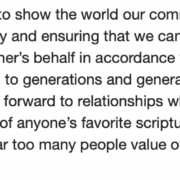Published in Culture Clash — a biweekly column in The Tribune — on June 28, 2017
As social justice issues become more mainstream, the number of activists, advocates, and allies is steadily increasing. People are more involved in conversations about gender, race, class, migration, and a variety of other issues with social media as a go-to resource for a broad range of news and commentary.
Access to information, opinions, and public action is at our fingertips; we can immediately respond to and participate in them. By becoming vocal, visible, and active, people feel more connected to existing movements, and see themselves as activists. Recently, there has been debate about who can call themselves an activist, and how the title is earned. Activism is more than social media posts and profile picture ribbons, but is it productive to discount the efforts of people trying to make a difference in whatever ways, however small, they can?
The work of activists is not trite, easy, or passive. Risks are assumed, positions are clear, and actions are taken. We all know activists are often demonised and ostracised because of their methods of participation and the challenge we bring to old ways of thinking and being. We are often painted as extremists — dangerous and unreasonable people.
In recent years, we’ve seen changes in this dynamic with people taking centre stage, refusing to be sidelined. In many cases, activists have created the agenda and an environment where the option to ignore or refuse to participate does not exist. Leading dialogues and taking control of both narratives and outcomes have always been critical, and the possibilities have increased along with appreciation for the work, and more people want to be a part of it.
Measuring and Validating Activism
While some take offence when others use “activist” to describe themselves, having a narrow view of what it means to embody the term, activism today takes many different shapes, and can be performed in a variety of ways. As people of marginalised communities fighting against oppression and actively disputing ideas of the monolith, it is unreasonable to expect activists to fit a mold. It is also far from productive to alienate, rebuke, or silence people who are, at the very least, allies.
There is no official list of qualifiers to determine whether or not a person is an activist. Even if creating one, it is important that our own values and abilities are not imposed on entire communities, expecting them to measure up to attain activism status. In fact, dictionary definitions of activism prioritise political causes, giving social issues a backseat. Clearly, activism has grown beyond the definition, and as we continue to be creative and provocative in our work, activism will continue to be dynamic, ever-changing.
Before taking action, most people assess their qualifications, skills, and living situation. Do they have the knowledge to write an informative article? Do they have the charisma to deliver a speech? Can they afford to leave work to protest? With such varied points of assessment, no one can use their own activities and choices to define activism for all. It is as diverse as the people who practice it and, perhaps more importantly, the people it is meant to reach.
Traditional and Social Media Activism
In years gone by, activists were known by their public deeds, from impassioned speeches to protests and petitioning. Today, it is difficult to differentiate activists from non-activists when they claim the term in thought, word, and deed. Do all activists protest? How many times does one have to protest before becoming an activist? How can a participant in (or beneficiary of) an oppressive system be an activist?
How can we give room to people who may not protest, but are active on social media, and have conversations in groups others among us may not be able to access? Their efforts may not be public-facing, but they can answer questions in our stead. We have to be able to value work that may not look like our own, but helps to lessen the burden we carry, saving us from the emotional burnout that can come from engaging both peers and the general public.
What is the value of people on social media sharing articles, giving different perspectives, posting pictures from public events, and directing people to more information? An active social media presence is not always as easy as it may seem. Online harassment continues to be a deterrent from using platforms like Facebook. It is often the less visible and less politicised figures who are able to engage in heated debates and escape relatively unscathed. How do account for the danger activists face just by the nature of the work, and avoid discounting their efforts because of the precautions they must take?
Diversity of Movements
Movement membership and participation are important, regardless of the shape they take. Some people march while others write think pieces. Some people start petitions while others send the link to their friends lists. Some are talk show guests while others wrestle with detractors on Facebook. In movements — large and small — fighting to end injustice and restore peace, there is room for everyone. A variety of personalities, skill sets, qualifications, knowledge, and experience make for a more robust, multifaceted movement.
To reach people in other spaces, movements need people with different experiences, and members of the dominant culture are needed as allies. While people on the frontlines take the brunt of the criticism and abuse, supporters need to be ready to defend fellow activists, dispel myths, and drive conversations forward, using more traditional actions as a springboard. The truth is there is always room for more in social and political movements, the need for people power and passion never diminishing. The differences in audience and approach are strengths, only increasing reach and impact. Recognising the value in our varied approaches will enable us to better work across disciplines and areas of focus, propelling us toward the version of The Bahamas we are all working to build.












Leave a Reply
Want to join the discussion?Feel free to contribute!